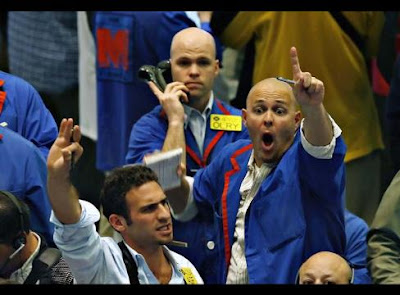Chevron Corp. and ConocoPhillips said they lost output from North Sea fields that produce oil and gas after BP Plc closed the pipeline. BG Group Plc said its Armada oil field in the North Sea has been shut for maintenance since June. The International Energy Agency said in a report today that global oil demand will rise 2.5 percent next year.
``Obviously, Brent is the leader,'' said Nauman Barakat, senior vice president of global energy futures at Macquarie Futures USA Inc. in New York. ``It looks like 150,000 barrels a day are being lost because of the pipeline problems in the North Sea, which is giving Brent a boost.''
Crude oil for August delivery rose $1, or 1.4 percent, to $73.50 a barrel at 11:43 a.m. on the New York Mercantile Exchange. Futures reached $73.80 yesterday, the highest intraday price since Aug. 15. Oil is up 0.9 percent this week.
New York crude is down 3.9 percent from a year ago, when prices were approaching a record $78.40 a barrel reached July 14, 2006, on concern fighting in Lebanon between Israel and Islamic militia Hezbollah would spread through the Middle East.
Brent crude oil for August settlement increased 84 cents, or 1.1 percent, to $77.24 barrel on the London-based ICE Futures exchange. Futures touched $77.60, the highest intraday price since Aug. 9.
 Demand Estimates
Demand Estimates
World oil demand will rise 1.8 percent this year. Demand next year will be led by accelerating consumption growth in China and the Middle East, according to the IEA. The agency lowered its 2007 demand estimate by 100,000 barrels a day since its previous report a month ago. The Paris-based agency is an energy adviser to 26 industrialized countries.
``The IEA is looking for strong growth next year,'' said Michael Lynch, president of Strategic Energy & Economic Research in Winchester, Massachusetts. ``They revised some recent demand estimates lower but not by enough to excite anyone.''
Iran will allow United Nations inspectors to visit a reactor under construction that could produce plutonium, the UN's International Atomic Energy Agency said today. The agreement came during discussions this week in Tehran between Ali Larijani, the country's security chief, and Olli Heinonen, the nuclear agency's deputy director-general.
Iran, which holds the world's second-largest oil and natural gas reserves, says it wants to enrich uranium for use in nuclear power plants to produce electricity. The U.S. says Iran seeks instead to develop an atomic bomb. The dispute has bolstered oil prices since January 2006 because of concern that oil shipments from the country might be cut.
``Iran has recently been off the radar but if the inspections go well we may see prices retreat below $70,'' Lynch said.
Tags: oil,IEA,gas